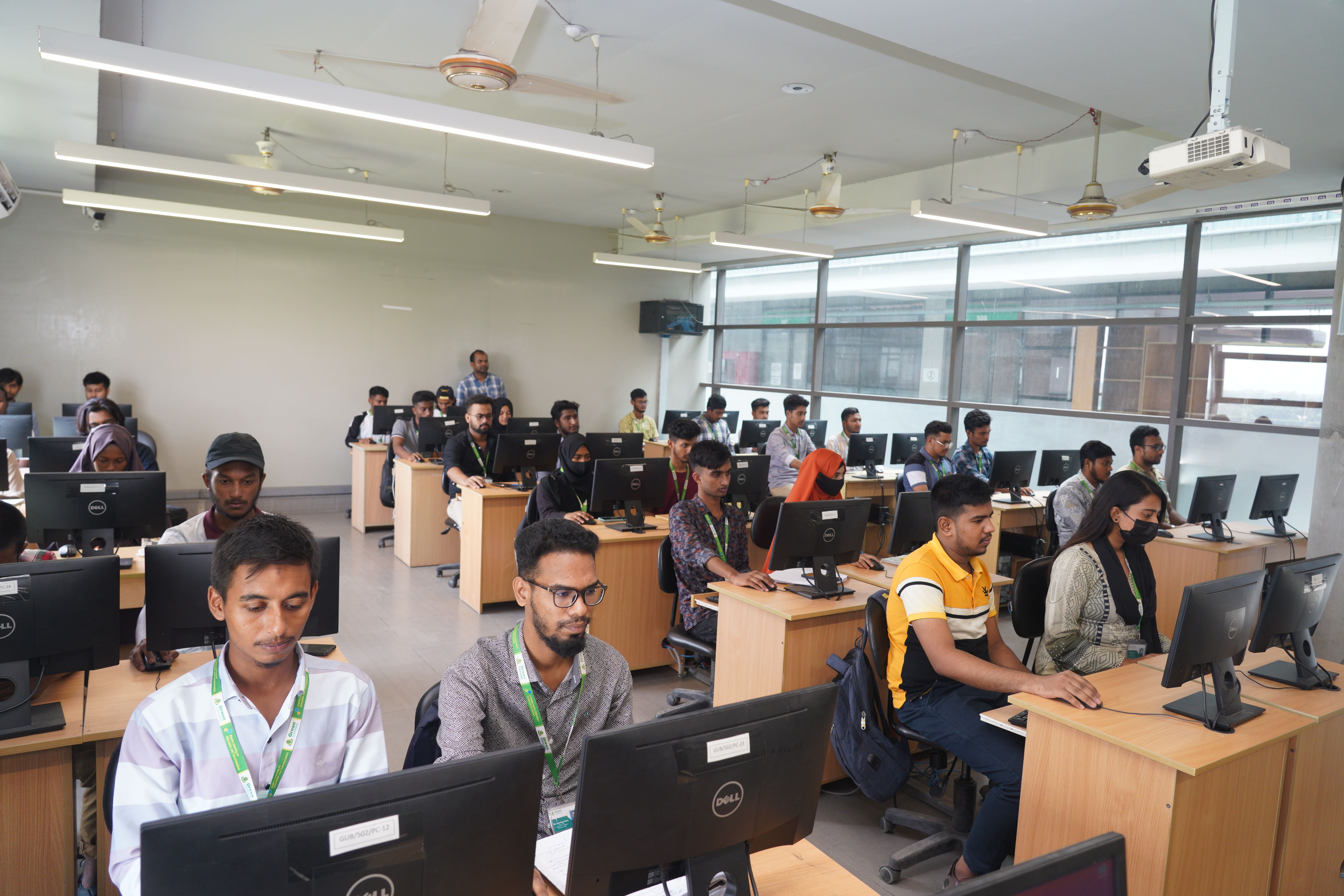Departmental Laboratory
Discover and engage with our state-of-the-art laboratories, where innovation meets hands-on learning.
Networking Lab

Networking Lab
Empowering Future Software Engineers with Robust Network Infrastructure
The Networking Lab at Green University’s SWE Department is a state-of-the-art facility designed to equip students with hands-on experience in modern networking technologies, essential for software engineering applications. The lab supports coursework, research, and projects in network design, security, cloud computing, and IoT integration, aligning with industry demands.
Key Features
Hardware Infrastructure:
High-performance computers for network simulation and testing.
Cisco routers and switches (e.g., Catalyst 3560X, 1900 Series) for real-world routing and switching experiments 15.
Wireless access points (TP-Link, D-Link) and fiber optic transceivers to study wireless and optical networks 15.
Network testing tools: Cable testers, crimping tools, and USB adapters for troubleshooting and deployment 15.
Software and Simulation Tools:
MATLAB (with Communication Toolbox) for signal processing and protocol analysis 6.
Packet Tracer/GNS3 for virtual network modeling.
PSPICE and Verilog HDL for embedded system networking (shared resources from EEE/CSE labs) 6.
Learning Scope:
Protocol Analysis: TCP/IP, HTTP, FTP, and VoIP implementation.
Security Practices: Firewall configuration, VPN setup, and intrusion detection.
Cloud and IoT Integration: Labs on AWS/Azure virtual networks and sensor-based communication.
Research and Projects:
Students develop projects like networked software applications, distributed systems, and smart home automation using Raspberry Pi/Arduino with network modules 615.
Collaborative Environment:
The lab supports teamwork with LAN-connected workstations and servers, mirroring industry-standard environments 6.
Why This Lab?
Bridges software engineering with network-centric solutions (e.g., microservices, APIs).
Prepares students for certifications like CCNA and roles in network software development.
Find Us
- Purbachal American City, Kanchan, Rupganj, Narayanganj-1461, Dhaka, Bangladesh
+880 9614482482 01324713503, 01324713502, 01324713504, 01324713505, 01324713506, 01324713507, 01324713508
- addmission@green.edu.bd
Departmental Sites
Useful Links
Get In Touch
© 2003-2025 Green University of Bangladesh. All Rights Reserved.
Developed by GCITS
